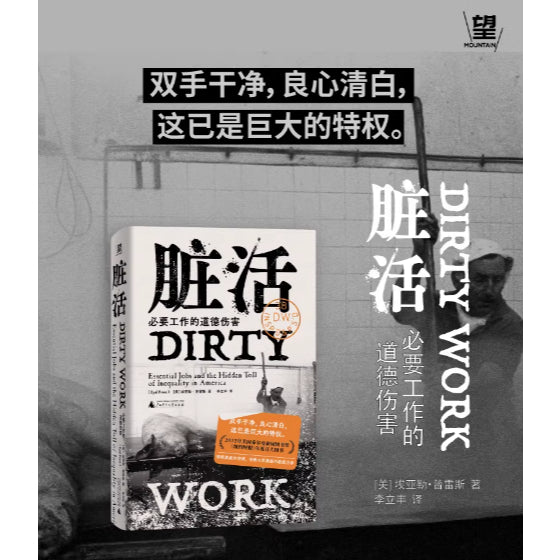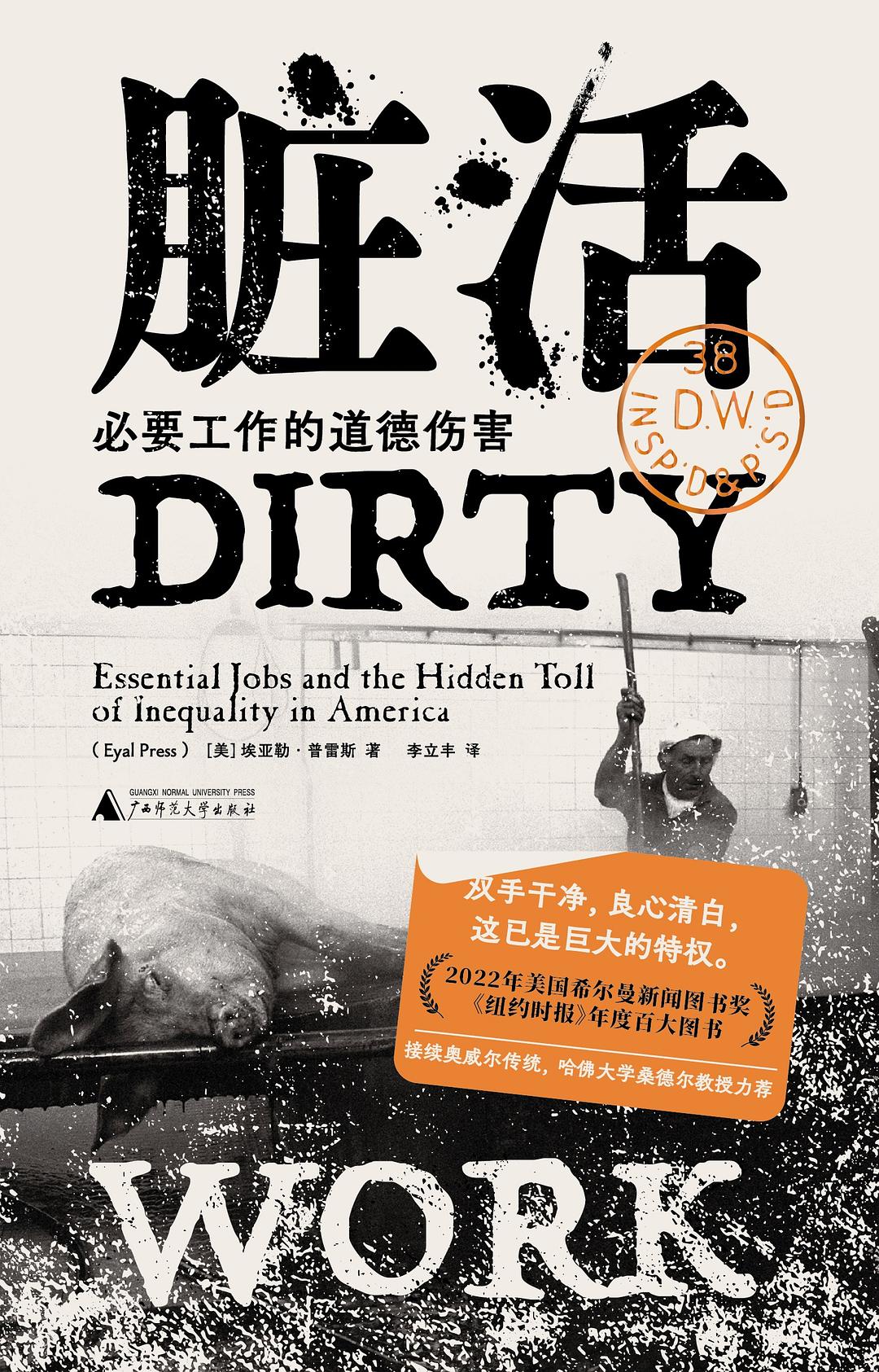WULOLIFE
《脏活》作者: [美] 埃亚勒·普雷斯 出版社: 广西师范大学出版社
《脏活》作者: [美] 埃亚勒·普雷斯 出版社: 广西师范大学出版社
Couldn't load pickup availability
Description
内容简介 · · · · · ·
Note:
维持社会运转的必要工作却遭忽视甚至唾骂。
我们假装看不见,但不平等已经到了最危险的时候。
-
【编辑推荐】
⭐当代社会残酷叙事,观察不平等的新维度,揭露打工人承受的道德成本
中不可或缺但道德存疑的职业:屠宰场劳工,监狱看守,石油钻井操作员……
使从事者蒙受污名、羞辱、精神创伤,但们宁愿被蒙在鼓里。
这些隐形劳工是被遗忘的百分之一,承担了社会百分之百的肮脏工作。他们是结构性不平等的受害者,却被剥夺了无辜。
当工作不再享有尊严,无权无势力者有权有势者坐享其成。我们是否有退出的选择?
⭐风险社会中精英的傲慢,曝光资本、权力、技术的共谋,如何剥夺穷人仅剩的良心
鹈鹕,而非殒命的钻井员工。屠宰场安全生产丑闻曝光,食客们担心的是盘中肉,而非抓取个人信息的程序员手握高薪,使“不作恶”成为空谈。
文明使暴力隐藏在社会生活幕后,站在道德高地的社会精英,用消费主义洗脱与恶行的共谋。
我们置身文明的国度,却成为野蛮的共犯。对远方的苦视而不见。
⭐新闻纪实的精彩之作,社会学者的温情书写,为每个被噤声和掩盖的打工人立传
奥威尔笔下的矿井工人,狄更斯所见的教养所囚犯,也在本书中重新现身。
作者以非虚构笔法与社会学视角,基于数年追踪采访,用详实数据和社会理论重新阐释了不平等的当代意涵。
-
【各界推荐】
新冠大流行暴露出我们对基础工人的依赖,而早在此之前,就有一群人做着我们或许不愿去想的工作。在这本深刻、敏锐、文笔优美的书中,埃亚勒·普雷斯探讨了从事这些工作的人的生活:监狱惩教官、无人机操纵员、屠宰场女工。《脏活》没有妄下评判,而是正视了一系列深刻而棘手的道德问题。它揭示了共谋他人,我们每个人都牵涉其中。这是一本精辟、重要的书。
——帕特里克·拉登·基夫,《疼痛帝国》作者
在这本内容丰富、令人不安的书中,埃亚勒·普雷斯强调了我们要求最弱势的社会成员从事某些蒙受污名和道德伤害的工作。在公众视野之外,监狱看守、屠宰场工人和无人机操纵员干着社会中的“脏活”。这本书揭示了我们所有人从而促使公众反思工作中的不平等。
——迈克尔·桑德尔,《精英的傲慢》作者
令人不安和必要……《脏活》几乎每一页都向我们展示了丑恶,但作者仍然希望我们抛开愤世嫉俗和悲观主义,他一起寻找加强我们之间道德纽带的方法。
——《纽约时报书评》
并不是玫瑰色的眼镜阻碍了对真实情况的清晰认识;正是精英傲慢不见
——《美国学人》
-
【内容简介】
为什么有些职业既不道德又不体面,还有人抢着做?当工作不再享有尊严,我们是否有退出的选择?在这本讲述职业与不平等的非虚构著作中,作者援引了“脏活”的概念,即社会中不可或缺但被视为肮脏、下作的工作,如屠宰场的移民劳工。这些人无权无势、朝不保夕,还会遭受羞辱与良心谴责。而公众宁愿被蒙在鼓里。本书描述了“看不见的工作”背后,资本如何与权力、技术共谋,塑造了不平等的权力结构,揭示了工作中隐藏道德成本的真相。

